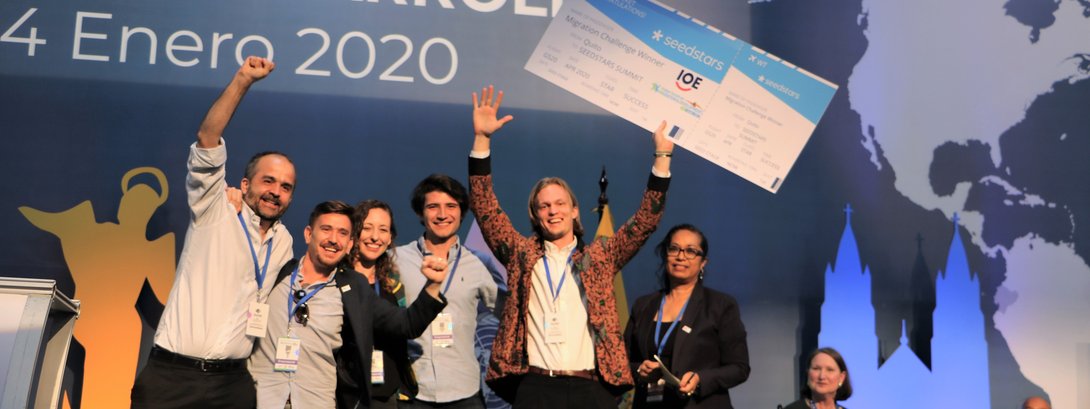New Year's Resolution 2021: May the Tech-Force be With You
How tech business start-ups can catalyse smart solutions to tackle migration challenges in a post-pandemic world.
Blog by Mohira Kurbanova and John Bingham from the Business Advisory Group on Migration Secretariat.
It is a new year, opening with the promise that vaccines as new as the year itself will slowly lift us beyond the staggering misery of the COVID-19 pandemic. Innovations and smart solutions are what made these vaccines happen. Not only in the health field, but across the range of social systems and structures—such as communications and connectivity, education, provision of social services, and identification and deployment of workers with essential skills, the pandemic shock has pushed the whole world to be more resourceful and flexible, and to make smart decisions.
What if tech solutions were available to help solve all sorts of social challenges[i]? A good example of smart decisions is supporting and empowering tech start-ups that offer solution-oriented products and services for persistent migration challenges that governments, employers, workers, and others on the move struggle with almost everywhere. As 2021 unfolds, this is exactly what the International Organisation of Employers (IOE) is doing in its second year of partnership with Seedstars through the “Migration Challenge” competition: working to identify and promote tech startups focused on finding more sustainable and scalable solutions to the migration issues. On Friday 22 January, 18 finalists will be pitching to an international audience from over 140 governments, mayors, leaders of business and civil society around the world at the XIII Global Forum on Migration and Development (GFMD). The winner and two runners-up will be announced at the GFMD prime time on-line Monday 25 January.
And just in time these days! When the COVID-19 crisis hit every corner of the world, international borders were closed swiftly. Millions of migrants were stranded. Many also saw during the crisis that it was often the migrant workers next door who continued to work in essential sectors to help keep economies going in vulnerable conditions. For both low-skilled and high-skilled migrants, technology became an essential lifeline during the pandemic period: to stay connected with their families, send or receive remittances, find information, and secure or extend their legal immigration status.
For governments, data driven policies such as recruitment platforms, e-visas, biometric identifiers, and remittance facilities have proven to facilitate the migration process to make it more transparent, fast and regular. For governments, employers, workers and others on the move, tech start-ups[ii] of that kind can very well be described as “superfoods” to maintain a healthy migration system.
A quick look at the start-ups that IOE and Seedstars have been working with since the beginning of the pandemic last year immediately shows us their range and value. From automation to accreditation, tech start-ups around the world are offering solutions to reskilling and training (DignifAI), talent matching (Hirefreehands), and one stop shop recruitment platforms (LaowaiCenter Intl and CasparCoding) for international skills mobility schemes. EdTech start-ups (PowerCoders and Holacode) establishing programs to teach coding and programming skills are helping migrants integrate in and contribute to their host communities. FinTech start-ups (cwallet and UHURU wallet) are offering cheaper and easy-to-use remittance facilities for migrants. Whether a migrant worker in Ukraine needs legal service in their language (Pravoman) or a hospital in Germany urgently needs qualified nurses from Tunisia (CorvusHealth), tech start-ups are innovative solutions.
Governments can empower growth and expand scaling of tech start-ups, which in turn can have ripple effects throughout the economy—in fact, multiple economies. Supporting start-up businesses of migrants or migrant-oriented products and services translates into investing in private sector economies of the host countries, transferring knowledge and skills to the migrant diaspora and in turn back to their country of origin, thus contributing to “brain-gain” in their home countries.
[i] “The issues of technology, innovation and productivity are mentioned in 10 of the 17 UN Sustainable Development Goals (SDGs) – 1, 2, 4, 5, 7, 8, 9, 12, 14, reflecting the importance of technological change in raising economic growth and living standards, and in reducing poverty”[i].



